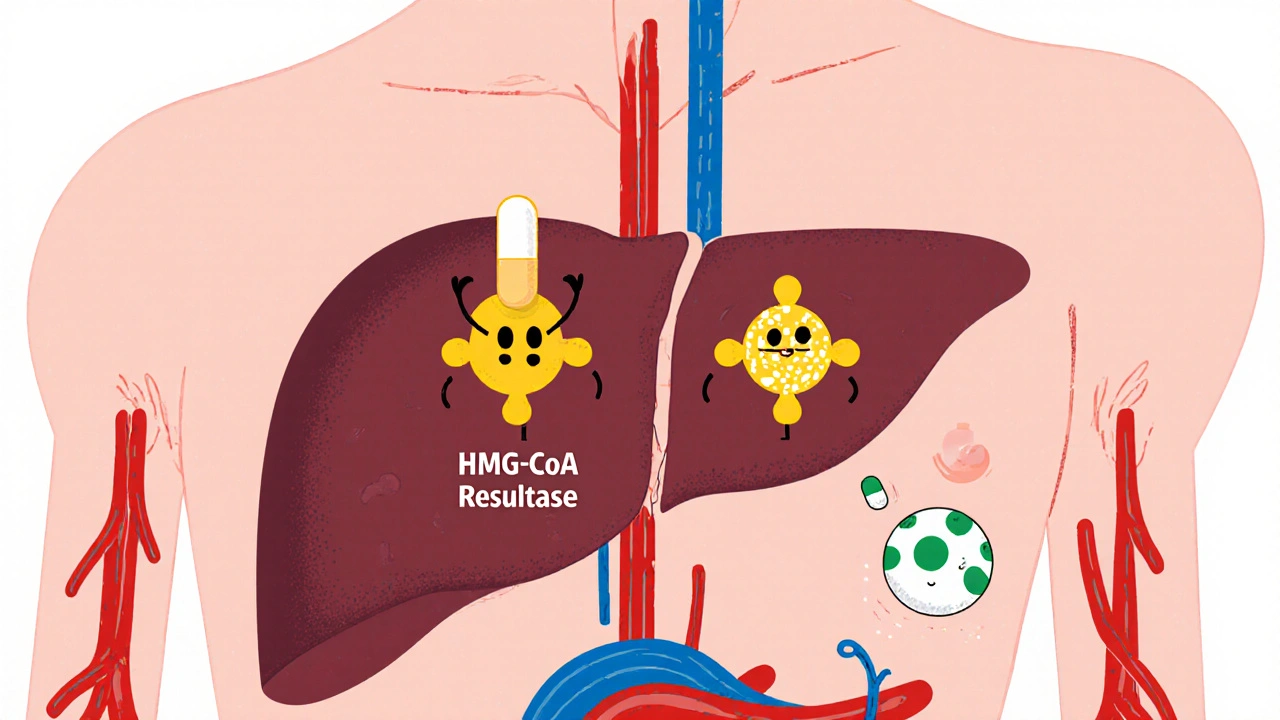LDL Reduction: How Medications and Lifestyle Choices Lower Bad Cholesterol
When you hear LDL reduction, the process of lowering low-density lipoprotein, the type of cholesterol linked to artery-clogging plaque. Also known as bad cholesterol reduction, it’s not just a lab number—it’s about protecting your heart from blockages, heart attacks, and strokes. High LDL doesn’t cause symptoms, but it quietly builds up over years. That’s why fixing it isn’t about quick fixes—it’s about consistent, smart choices.
Most people start with statins, a class of drugs that block cholesterol production in the liver. These are the most proven tools for LDL reduction, often cutting levels by 30% to 50%. But statins aren’t the only option. If they don’t work or cause side effects, doctors turn to ezetimibe, a pill that reduces cholesterol absorption in the gut, or newer injectables like PCSK9 inhibitors, which help the liver pull more LDL out of the blood. These aren’t for everyone, but they’re game-changers for those at high risk.
Medications work best when paired with real lifestyle changes. Eating less saturated fat—think fried foods, fatty meats, full-fat dairy—makes a bigger difference than most people think. Swapping in fiber-rich foods like oats, beans, and apples helps trap cholesterol in the gut so it doesn’t get absorbed. Regular movement, even just walking 30 minutes a day, boosts good cholesterol and helps your body clear out the bad. And weight loss? Even losing 5% of your body weight can drop LDL significantly.
Some of the posts below dive into how certain drugs interfere with cholesterol meds—like acid-reducing pills that block absorption, or antibiotics that throw off your liver’s ability to process statins. Others show how conditions like liver disease or obesity make LDL harder to control. You’ll also find real talk on side effects, why some people can’t take statins, and what alternatives actually work. This isn’t theory. It’s what people are dealing with every day.
There’s no magic bullet for LDL reduction, but there are clear paths forward. Whether you’re on meds, trying to avoid them, or just want to understand what’s happening in your body, the guides below give you the facts without the fluff. What works for one person might not work for another—but you’ll find the tools to figure out what’s right for you.

Statin Medications: How They Lower Cholesterol and What You Need to Know About Muscle Pain
- Nov, 20 2025
- Daniel Remedios
- 12 Comments
Statins lower cholesterol and cut heart attack risk by up to 30%, but muscle pain affects up to 29% of users. Learn how they work, which statins cause fewer side effects, and what to do if you experience muscle pain.
